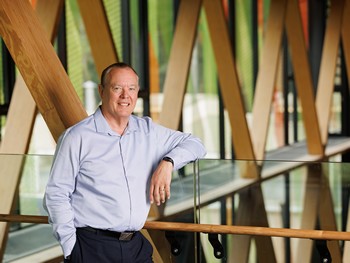Growing the value of New Zealand’s bioeconomy

New Zealand faces a ‘productivity paradox’. Since the 1960s the productivity of our economy – the value of the goods and services that we produce for the number of hours we work – has been much lower than should be expected for an economy like ours, even though we work harder than people in economies that we regularly compare ourselves against. A key lesson is that New Zealand needs to work smarter, not harder.
Our science and innovation sector isn’t creating the value for New Zealand that we need it to. New Zealand has under-invested in science and innovation in sectors that would genuinely transform our economy. We also tend to spread our investment on science and innovation thinly.
The government has started a process to fix that and enable our sectors to play a greater role in lifting New Zealand’s productivity and economic growth – and ultimately help all Kiwis get ahead. There is a proven link between science and innovation and economic productivity, so it is critical the sector is operating efficiently.
Scion has shown its future focus and agility with a strategic refocussing, shifting from a science-focussed organisation to one focussed on delivering impact. We are seeing the effect of this with much stronger partnerships and growth in contracts with the private sector, particularly in the added value products and material space.
At Scion, we’re globally recognised for world leading innovation and research in circular bioeconomy solutions built on over 75 years’ work in developing planted forestry and products from wood. Our reputation in industrial biotech has grown rapidly, and new businesses developing solutions in these areas are telling us that we have the best industrial biotech capability in New Zealand.
We are seeing more companies wanting to work closely with us at our unique innovation campus at the Te Papa Tipu Innovation Park in Rotorua. We already have more than 40 tenants on site, and a growing number wanting to locate with us because of the innovation ecosystem and expertise they get to interact with.
The world is moving to circular bioeconomy solutions and these are areas where New Zealand has comparative advantage. We see enormous opportunities from this transition. Manufacturing sustainable marine biofuel from wood that can be blended directly with existing marine fuel is a $600 million opportunity for New Zealand, and industrial biotech and gene technologies can unlock over $2 billion per year in revenue by creating new product opportunities, with benefits to agriculture, environment and energy security. Replacing only half the steel and concrete in New Zealand buildings with advanced timber engineering could reduce emissions by 1 Mt CO2-eq every year.
New Zealand needs to accelerate this transformation, or risk being left behind. It is essential that our science, innovation and technology sector is aligned to deliver on these great opportunities for New Zealand and our people.

Dr Julian Elder
Chief Executive
